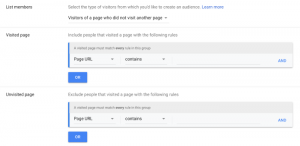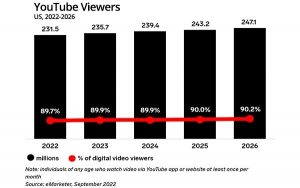— September 27, 2017

StockSnap / Pixabay
One of the most demoralizing aspects of the job search is clicking “submit” on an online application only to be faced with deafening silence. Some job seekers submit dozens of applications without hearing anything back, making it difficult for them to determine their next steps or move on from a job opening in which they’ve become emotionally invested. Seeing a resume disappear into the void with no promise of feedback contributes to a sense of futility and lack of progress.
Why aren’t you hearing anything back after submitting an application or resume? Here are 4 possible reasons:
1. Your resume content wasn’t optimized for ATS
You weren’t accepted. You weren’t rejected. You weren’t seen at all.
When you’re filling in an online job application, you’re entering your information into an applicant tracking system, or ATS. These systems are used by hiring managers and recruiters to manage and filter a high volume of job applicants. Depending on the system (Taleo, iCims, BambooHR, etc.), the hiring manager may search for the keywords most important to the job. Keywords such as:
Job Titles – Hiring managers often prefer applicants who have already held the position.
Hard Skills – These are industry-specific skills critical to the job. For example, a hiring manager might search for programming languages like CSS, PHP, or Javascript when hiring a web developer.
Soft Skills – While less important than hard skills, soft skills include things like Time Management, Critical Thinking, and Adaptability.
Hiring managers are more likely to search for terms they asked for in the job description. Scan the job description for keywords and phrases to include in your resume.
2. Your resume format isn’t ATS-friendly
It’s not just the content of your resume that needs to account for ATS. The resume document itself needs to to be ATS-compatible.
Many ATS automatically parse your resume, or identify key information and place it into searchable fields. If your resume features unusual fonts, uses tables, or is structured in a non-conventional way, the ATS might not be able to tell what’s what. This could result in an error that rejects your application outright or keep your resume from coming up in searches.
While you may want to use your design skills to create an attractive resume, it’s more important to keep your formatting as simple as possible when dealing with an ATS.
3. You were auto-rejected
You might have ruled yourself out before anyone had a chance to search the ATS. Many hiring managers add knockout questions to their online application to eliminate under-qualified or ineligible candidates right off the bat. Picking the “wrong” answer on one of these questions could result in your application being automatically rejected before the hiring manager has a chance to look it over.
Examples of knockout questions include:
- Can you legally work in the United States?
- Are you willing to work weekends?
- Do you have a Bachelor’s degree in Computer Science or a related field?
- Do you have at least 3 years of experience in content marketing?
- Do you prefer to work independently or as part of a team?
4. You didn’t follow up
According to a Job Hunt survey, “51 percent of employers and HR professionals say they do not consider candidates who don’t follow up after they submit an application.” For that reason alone, it’s worth it to track down the hiring manager to try and make a better impression. Getting in touch with an actual person can let you know where your application is in the process, what you could do better if you were indeed rejected, and network for the future.
Business & Finance Articles on Business 2 Community
(93)
Report Post






